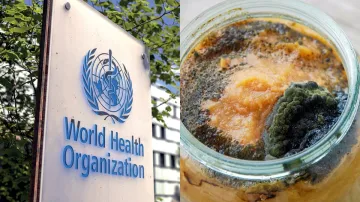World Food Safety Day is observed on June 7, every year. Saima Wazed, the WHO Regional Director, delivered a stark reminder of the profound consequences of consuming unsafe food. With a staggering 1.6 million individuals worldwide falling ill daily, the urgency of addressing this issue cannot be overstated. "Every day, approximately 1.6 million people worldwide fall ill due to the consumption of unsafe food," she said.
Alarmingly, among those affected, a substantial 40 percent are children under the age of 5, already vulnerable to the perils of malnutrition and mortality. This statistic underscores the imperative of safeguarding food quality, particularly for the most vulnerable among us.
Established in 2018 by the UN General Assembly, World Food Safety Day serves as an annual beacon, illuminating the importance of preventing, detecting, and responding to the public health hazards associated with unsafe food. This year's theme, "Prepare for the unexpected," resonates deeply in a world grappling with evolving challenges.
Saima Wazed emphasised the significant economic toll of unsafe food, estimating an annual loss of $110 billion in low- and middle-income countries. This financial burden not only hampers productivity but also strains healthcare systems already grappling with myriad challenges.
Drawing attention to the Southeast Asia Region, Saima highlighted its position as the second-highest health burden bearer, trailing only Africa. Here, approximately 150 million illnesses and 175,000 deaths occur annually due to contaminated food—a staggering toll on human health and well-being.
The underlying causes of food contamination are complex and multifaceted. The tropical climate prevalent in many regions fosters the proliferation of pests and accelerates the formation of naturally occurring toxins. Moreover, the compounding effects of climate change exacerbate these challenges, necessitating robust responses to safeguard food systems.
Saima Wazed stressed that addressing food safety requires a concerted effort from all stakeholders. "Food safety is a collective responsibility, and governments, producers, and consumers need to play their role in ensuring food safety," Saima said.
Governments play a pivotal role in developing and rigorously testing national food safety emergency response plans. Meanwhile, producers and food business operators must diligently implement and update food safety management protocols to ensure the integrity of the supply chain.
However, the responsibility does not rest solely on the shoulders of policymakers and producers. Consumers, too, wield significant influence in shaping food safety practices. By adopting safe food handling practices at home and promptly reporting any incidents, individuals can empower themselves and contribute to collective efforts to mitigate risks.
On this World Food Safety Day, let us heed Saima Wazed's call to action. By prioritising food safety, we can protect public health, bolster economic resilience, and foster a future where safe, nutritious food is accessible to all.
(with IANS inputs)
ALSO READ: WHO confirms first death from bird flu in Mexico: Know symptoms and more about H5N2
